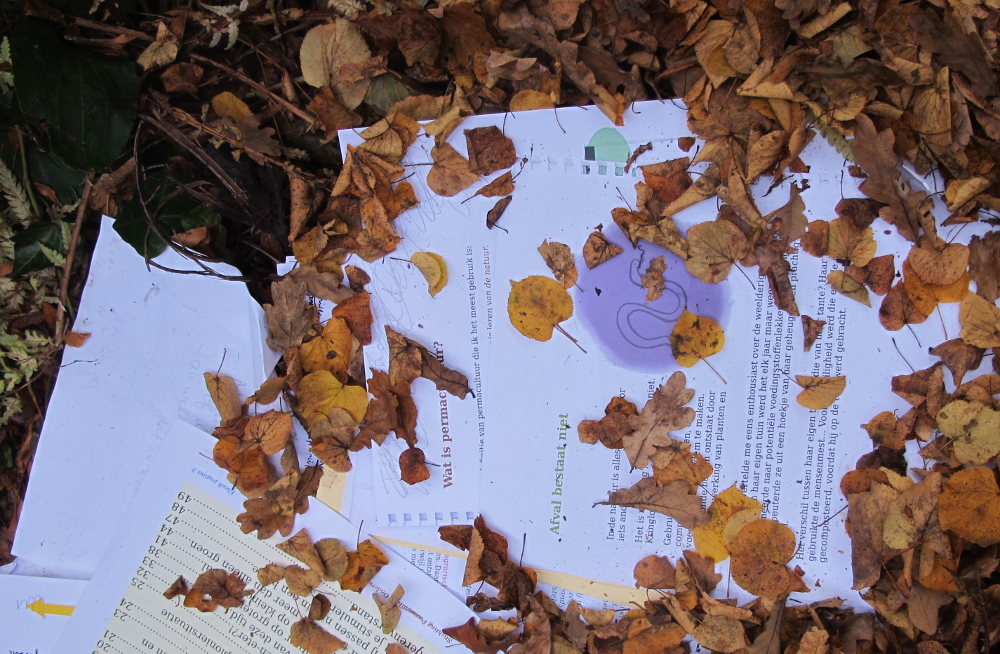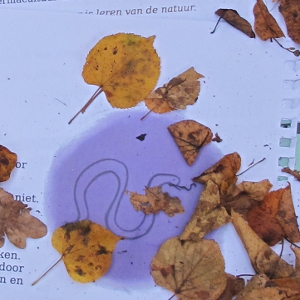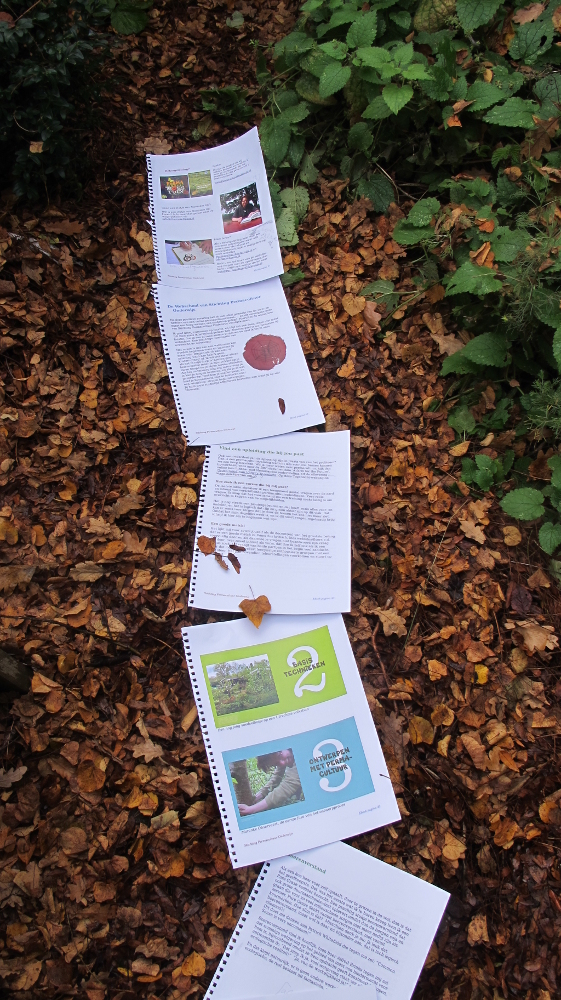Fermenteren heeft wel wat weg van het landschap leren lezen!
Wat is daar nu de overeenkomst tussen, vraag je je wellicht af. Als je het landschap leert lezen dan doe je dat in ‘de natuur’ of in je tuin, terwijl je fermenteert in je keuken! (Zelfs als je driehoog-achter woont op een klein flatje, dan kun je gaan experimenteren met fermenteren.) Toch zie ik grote overeenkomsten tussen deze twee. Beide zijn namelijk een medicijn tegen ons ecologisch analfabetisme. Het steeds verder losgeraakt zijn van de rest van de natuur.
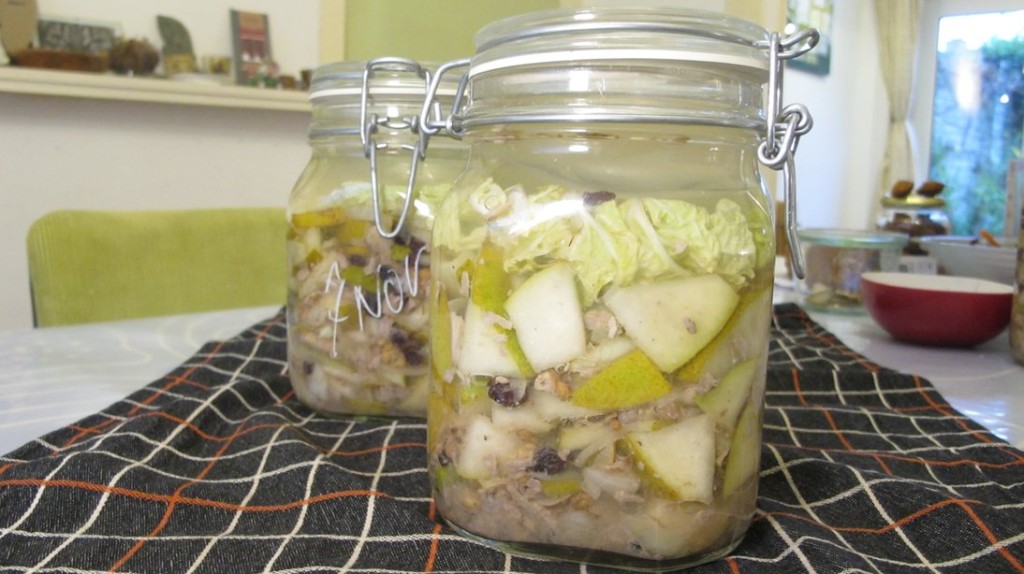
Ik zie ook grote overeenkomsten tussen tuiniersjargon en de begrippen die door fermentista’s gebruikt worden. Waar tuiniers soms planten uitschelden voor onkruid, een kruid als zevenblad bijvoorbeeld tuindersverdriet noemen, doen fermentista’s soms iets soortgelijks. Ik heb al velen de kahm-gist horen uitschelden voor de vloek van de fermentista! Terwijl ik natuurlijk naast liefhebbers van zevenblad, een voor mensen zeer eetbaar en inmiddels door velen als lekker omschreven kruid, ook mensen tegenkwam die de kahm-gist zo ongeveer lijken te aanbidden. En deze aanbidders doen dan juist weer hun best om in de keuken omstandigheden te creëren waarin de kahm-gist floreert. Zij vinden het smaakje dat deze gist aan hun fermentatieproducten kan geven lekker, terwijl andere het juist als onsmakelijk omschrijven. Over smaak valt niet te twisten.

Het creëren van de omstandigheden waaronder bepaalde micro-organismen het naar de zin hebben, is waar het interssant wordt: het heeft veel weg van het creëren van bijvoorbeeld een microklimaatje in de tuin waardoor planten waar jij graag van wilt eten, het goed naar de zin hebben. Die krijgen een concurrentievoordeel. Hetzelfde doe je met fermenteren. Bij melkzuurfermentatie bijvoorbeeld geef je vrienden (de melkzuurbacteriën) een concurrentievoordeel boven de rest, en vindt er melkzuurfermentatie plaats. En net als er heel veel verschillende insecten zijn, waarvan een klein deel dingen doet die jij mogelijkerwijze niet prettig vindt, is de overgrote meerderheid juist bezig dingen te doen waardoor jouw doelen bereikt worden, zoals bijvoorbeeld het bestuiven van je boomgaard. Zo is het met fermenteren ook. En nee, het is niet gevaarlijk of razend ingewikkeld: met een beetje basiskennis en boerenverstand kun je het prima zelf.

Het is onze aangeleerde vrees voor micro-organismen, harde werkers die de basis van het leven zijn, die ervoor zorgt dat we het (ja, ik ook) toch vaak een beetje eng vinden. Maar die vrees is, net als het doorgeschoten ‘netheidssyndroom’ (“Is jóúw tuin al leeg Buurman?!”), anti-life!
Deze vrees rukt ons los van het levensweb, het ecologisch analfabetisme dat daaruit voortvloeit kan uitgedaagd worden door lekker aan de slag te gaan.
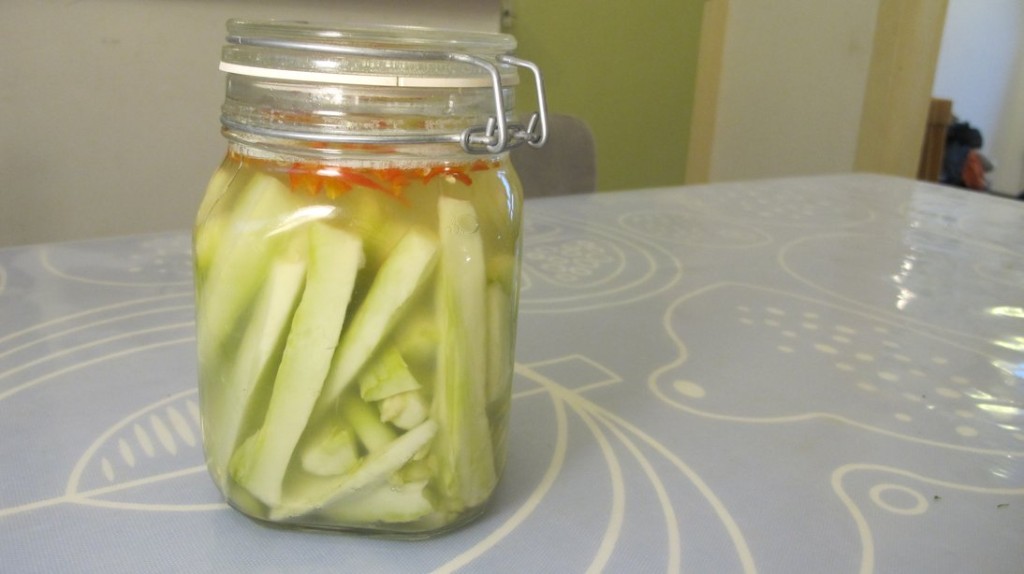
Ben je geïnteresseerd om meer te leren over dit onderwerp en andere technieken om voedsel bewaarbaar te maken? Het is een van de thema’s in onze jaaropleiding permacultuur, zoals de doorlopende jaaropleiding permacultuur in onze Webschool. Tevens zou je kunnen overwegen deel te nemen aan mijn cursus ‘Samenvoorzienend voedsel verwerken‘, ook wel liefkozend ‘Heksendriedaagse’ voor hem & haar genoemd. We gaan samen fermenteren, drogen, wecken en dergelijke. Alle cursussen van Stichting Permacultuur Onderwijs zijn een mix van theorie en praktijk. Deze reeks van drie HuiskamerSessies vond driemaal plaats in februari, in maart en in april 2016, en in de herfst van 2016 heb je misschien meegedaan aan een van de drie reeksen van drie dagen, of in voorjaar 2017 in zes reeksen en houd onze Seizoenstips in de gaten of e-mail me even voor de herfst van 2017!.
Marankes blog
Maranke Spoor is docent permacultuur, tegenwoordig ook in de interactieve permacultuur webschool van Stichting Permacultuur Onderwijs. Maranke begon al op jonge leeftijd als tuinier. Op elke plek waar ze woonde zorgde ze al snel voor een eetbare siertuin: op balkon en dakterras, in schooltuin en moestuin. Maranke is opgeleid als jurist, een beroep dat ze o.a. in de vorm van docent recht tot 2010 uitoefende, is initiator van www.weggeefwinkels.nl en sinds 2010 docent permacultuur. In die hoedanigheid verzorgde ze reeds vele opleidingen op het gebied van permacultuur/voedselbossen. Verder is ze sinds 2013 voorzitter van Stichting Permacultuur Onderwijs, vertaalde en bewerkte ze samen met haar collega Lucas Brouns Engelstalige permacultuur literatuur (Herstellende Landbouw van Mark Shepard en Permacultuur in je moestuin van Christopher Shein) en is ze illustrator en auteur, van: ‘Permacultuur, Wat is dat!?’, een eboek dat in juni 2015 is verschenen.
